Related Research Articles

Wile E. Coyote and the Road Runner are a duo of cartoon characters from the Looney Tunes and Merrie Melodies series of animated cartoons, first appearing in 1949 in the theatrical short Fast and Furry-ous. In each film, the cunning, devious and constantly hungry coyote repeatedly attempts to catch and eat the roadrunner, but is humorously unsuccessful. Instead of using animal instinct, the coyote deploys absurdly complex contraptions to try to catch his prey. They comically backfire, with the coyote invariably getting injured in slapstick fashion. Many of the items for these contrivances are mail-ordered from a variety of companies implied to be part of the Acme Corporation. TV Guide included Wile E. Coyote in its 2013 list of "The 60 Nastiest Villains of All Time".
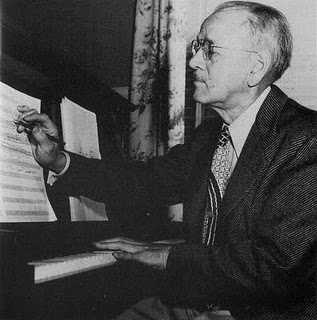
Carl William Stalling was an American composer, voice actor and arranger for music in animated films. He is most closely associated with the Looney Tunes and Merrie Melodies shorts produced by Warner Bros., where he averaged one complete score each week, for 22 years.
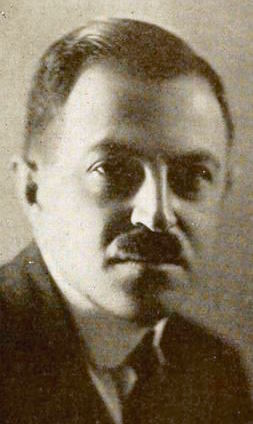
Max Fleischer was a Polish-American animator and studio owner. Born in Kraków, Poland, Fleischer immigrated to the United States where he became a pioneer in the development of the animated cartoon and served as the head of Fleischer Studios, which he co-founded with his younger brother Dave. He brought such comic characters as Koko the Clown, Betty Boop, Popeye, and Superman to the movie screen, and was responsible for several technological innovations, including the rotoscope, the "follow the bouncing ball" technique pioneered in the Ko-Ko Song Car-Tunes films, and the "stereoptical process". Film director Richard Fleischer was his son.

Bosko is an animated cartoon character created by animators Hugh Harman and Rudolf Ising. Bosko was the first recurring character in Leon Schlesinger's cartoon series and was the star of thirty-nine Looney Tunes shorts released by Warner Bros. He was voiced by Carman Maxwell, Bernard B. Brown, Johnny Murray, and Philip Hurlic during the 1920s and 1930s and once by Don Messick during the 1990s.
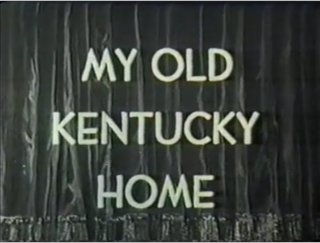
My Old Kentucky Home is a short animation film originally released in June 1926, by Max and Dave Fleischer of Fleischer Studios as one of the Song Car-Tunes series. The series, between May 1924 and September 1926, eventually totaled 36 films, of which 19 were made with sound. This cartoon features the original lyrics of "My Old Kentucky Home" (1853) by Stephen Foster, and was recorded in the Lee de Forest Phonofilm sound-on-film system.
Mother, Mother, Mother Pin a Rose on Me is a film, produced by Out of the Inkwell Studios in the Phonofilm sound-on-film system, and released on March 1, 1925, as part of the Song Car-Tunes series.
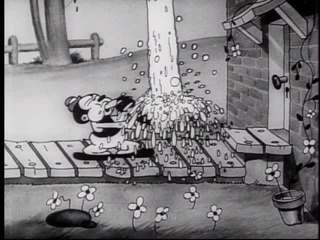
Sinkin' in the Bathtub is the first Warner Bros. theatrical cartoon short as well as the first of the Looney Tunes series. The short debuted in April 1930, at the Warner Bros. Theater in Hollywood. The cartoon features Bosko, and the title is a pun on the 1929 song Singin' in the Bathtub. The film was erroneously copyrighted under the same title as the 1929 song. It is now in the public domain in the United States as the copyright was not renewed.

Miranda Taylor Cosgrove is an American actress, producer, and former singer. A teen idol of the 2000s and early 2010s, she was listed as the highest-paid child actor of 2012 by Guinness World Records and appeared on Forbes' "30 Under 30" list in 2022. Her accolades include four Kids' Choice Awards and an Emmy nomination.

A show tune is a song originally written as part of the score of a work of musical theatre or musical film, especially if the piece in question has become a standard, more or less detached in most people's minds from the original context.
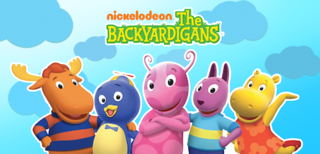
The Backyardigans is an animated musical children's television series created by Janice Burgess for Nickelodeon. The series was written and recorded at Nickelodeon Animation Studio. It centers on five anthropomorphic animal neighbors who imagine themselves on fantastic adventures in their backyard. The show's title is a portmanteau of "backyard" and "cardigan". Each episode is set to a different musical genre and features four songs, composed by Evan Lurie with lyrics by McPaul Smith. The Backyardigans' adventures span many different genres and settings. The show's writers took inspiration from action-adventure films, and many episodes are parodies of films.

"(You're the Flower of My Heart,) Sweet Adeline" is a ballad best known as a barbershop standard. It was first published in 1903, with lyrics by Richard Husch Gerard to music by Harry Armstrong, from a tune he had written in 1896 at the age of 18. According to a 1928 newspaper story, the lyrics were inspired "by a girl who worked at the music counter of a New York department store." After failing to find a publisher with the initial title, "You're the Flower of My Heart, Sweet Rosalie", according to a story the two decided a new title was in order and were inspired by a poster advertising the farewell tour of opera singer Adelina Patti. It did not become a hit until it was performed in 1904 by the group The Haydn Quartet. The Haydn Quartet's version was #1 for 10 weeks in 1904, and the Peerless Quartet also hit #1 with their version in 1904, for three weeks, according to Joel Whitburn's Pop Memories.
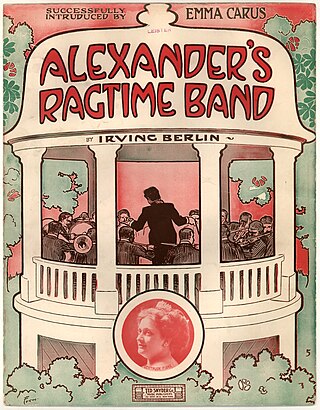
Screen Songs are a series of animated cartoons produced at the Fleischer Studios and distributed by Paramount Pictures between 1929 and 1938. Paramount brought back the sing-along cartoons in 1945, now in color, and released them regularly through 1951. Two of Paramount's one-shot cartoons quietly revived the format later: Candy Cabaret (1954) and Hobo's Holiday (1963).
Phonofilm is an optical sound-on-film system developed by inventors Lee de Forest and Theodore Case in the early 1920s.
Ko-Ko Song Car-Tunes, Song Car-Tunes, or Sound Car-Tunes, is a series of short three-minute animated films produced by Max Fleischer and Dave Fleischer between May 1924 and September 1927, pioneering the use of the "Follow the Bouncing Ball" device used to lead audiences in theater sing-alongs. The Song Car-Tunes also pioneered the application of sound film to animation.
"Has Anybody Here Seen Kelly?", with music and lyrics by C. W. Murphy and Will Letters (1908), is a British music hall song, originally titled "Kelly From the Isle of Man". The song concerns a Manx woman looking for her boyfriend during a visit to London. It was adapted for American audiences by William McKenna in 1909 for the musical The Jolly Bachelors. Kelly is the most common surname on the Isle of Man.
The Sidewalks of New York are two cartoon short films made by animation pioneers Max Fleischer and Dave Fleischer, both films using the 1894 song "The Sidewalks of New York".
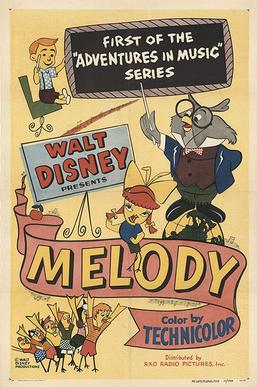
Melody is an American animated short film produced by Walt Disney Productions and directed by Ward Kimball and Charles A. Nichols. Originally released on May 28, 1953, this film was the first in a proposed series of animated cartoon shorts teaching the principles of music, called Adventures in Music. Only one other entry in the series was produced, Toot, Whistle, Plunk and Boom, which was released later that same year, winning an Academy Award for Best Short Subject (Cartoons) the following year.
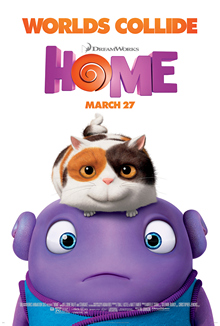
Home is a 2015 American animated science fiction comedy film produced by DreamWorks Animation and distributed by 20th Century Fox. Loosely based on Adam Rex's 2007 children's book The True Meaning of Smekday, the film was directed by Tim Johnson from a screenplay by Tom J. Astle and Matt Ember, and stars the voices of Jim Parsons, Rihanna, Steve Martin, Jennifer Lopez, and Matt Jones. The story follows the shared adventures of a friendly alien who is shunned by the rest of his kind, and a teenage girl searching for her mother after they are separated during an invasion of Earth.

Mabel Pines is a fictional character and one of the two lead characters of the Disney Channel/Disney XD animated series Gravity Falls. The character is voiced by Kristen Schaal, and designed by the series creator, Alex Hirsch. She is inspired by Hirsch's own twin sister, Ariel Hirsch. Mabel first appeared on the unreleased pilot created by Hirsch which he used to pitch the show; she then appeared on the first episode "Tourist Trapped". Mabel, alongside her brother Dipper Pines, stars in every episode of the series. Mabel also has two series of shorts dedicated to her: "Mabel's Guide to Life" and "Mabel's Scrapbook". She also appears in two additional short series, "Dipper's Guide to the Unexplained" and "Fixin' it with Soos", and the music video "Call Me Mabel", a parody of Carly Rae Jepsen's song "Call Me Maybe".
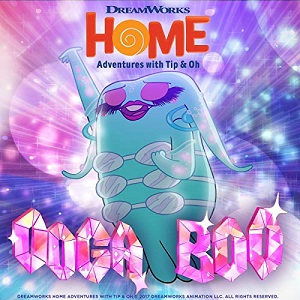
"Ooga Boo" is a promotional single by American singer and actress Cher, recorded for DreamWorks Animation's Netflix original series Home: Adventures with Tip & Oh. The song was digitally released as a single on September 15, 2017, by Back Lot Music. Cher announced on Twitter that she was unaware of the digital release of the track until the day before the release. It was produced by Alexander Geringas, with lyrics written by Geringas and Todd Garfield. An animated music video featuring Cher as "Chercophonie" was previously released on August 14, 2017.
References
- ↑ Lenburg, Jeff (1999). The Encyclopedia of Animated Cartoons. Checkmark Books. pp. 44–45. ISBN 0-8160-3831-7 . Retrieved June 6, 2020.
- ↑ "Oh Mabel". www.silentera.com. Retrieved September 23, 2012.